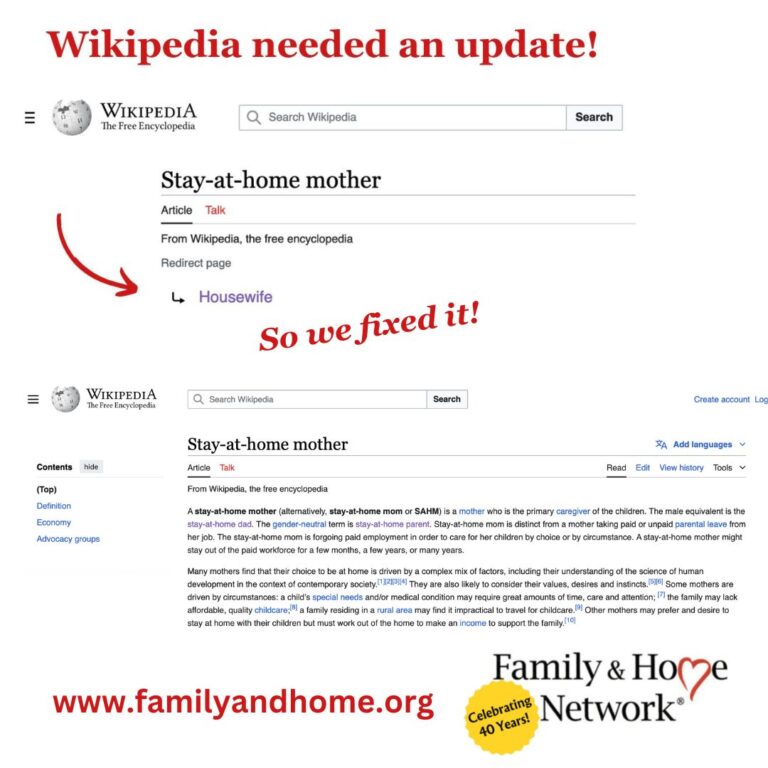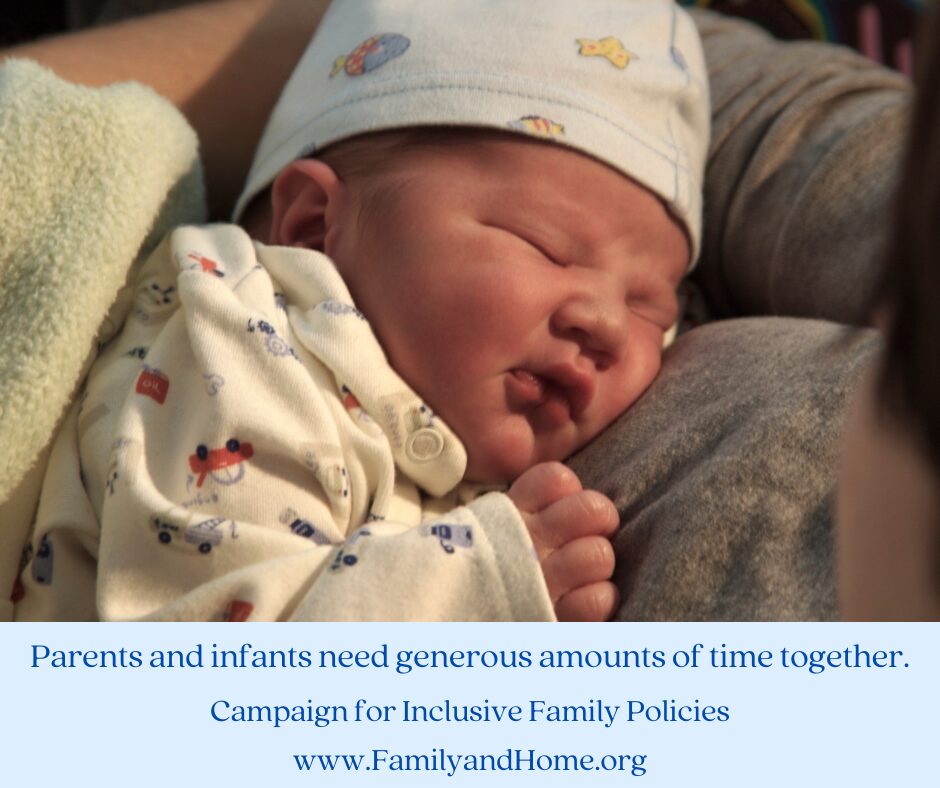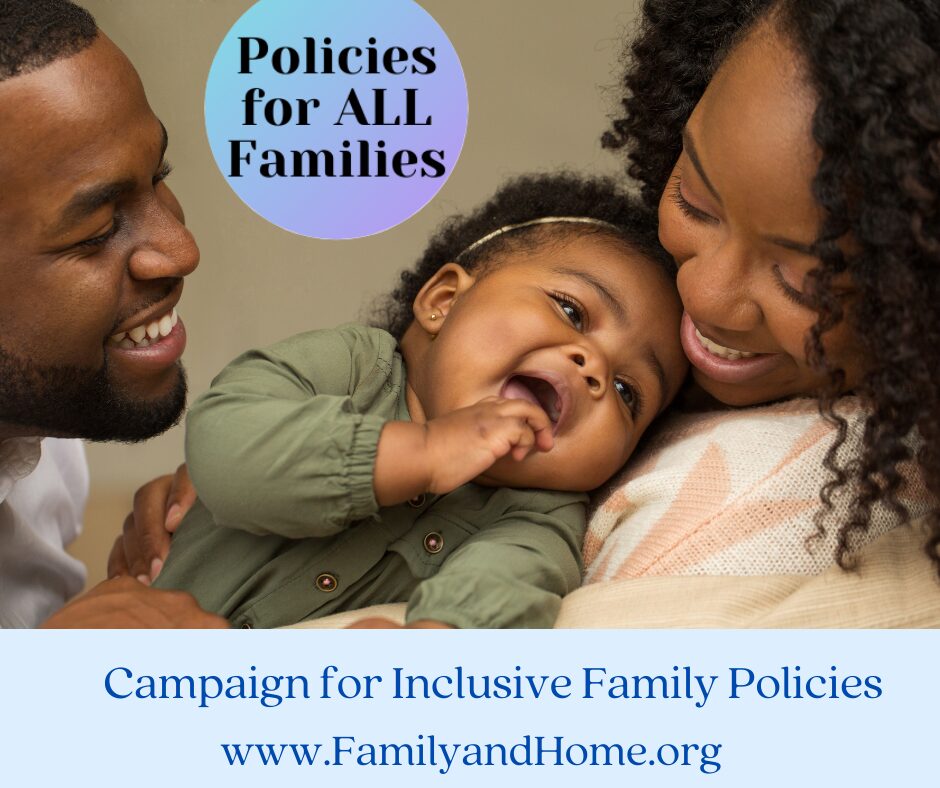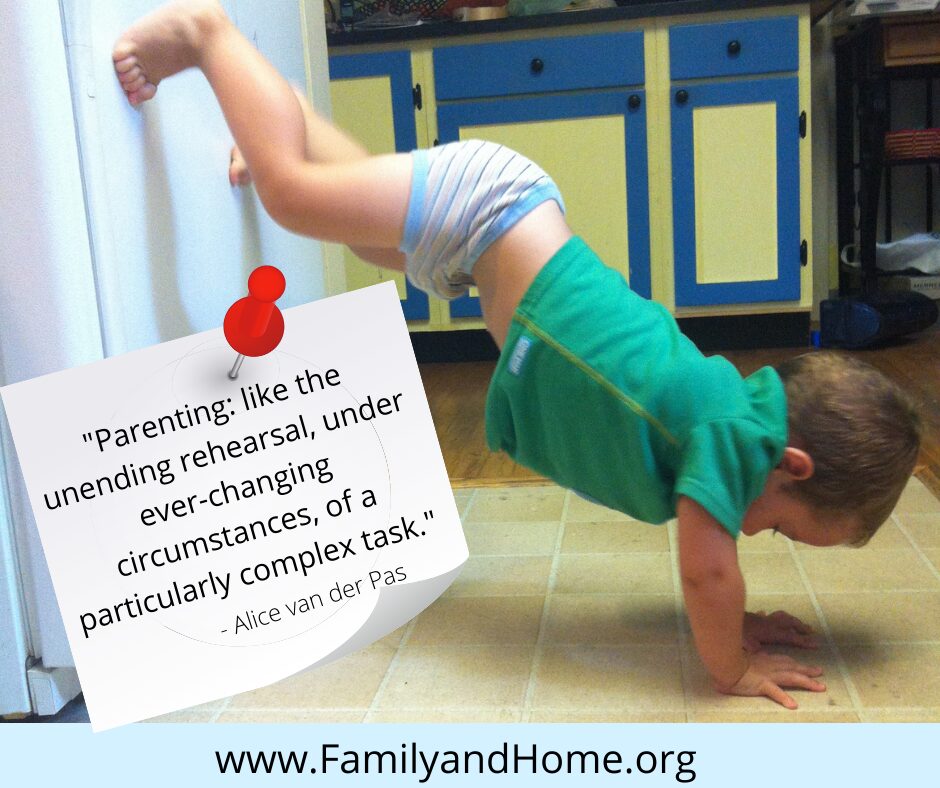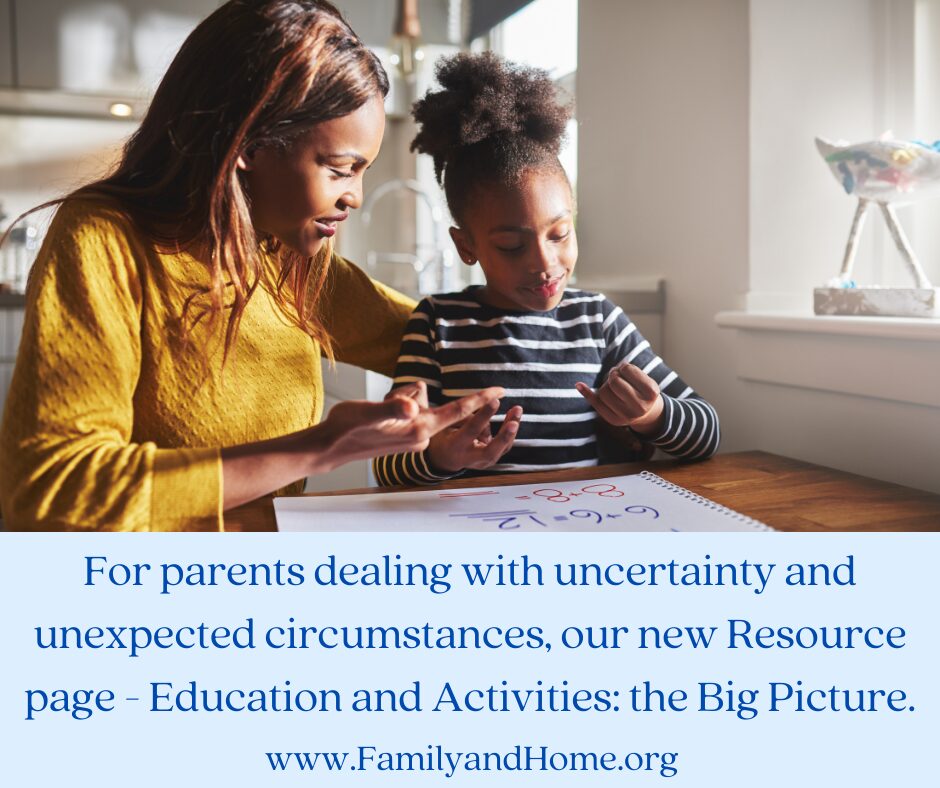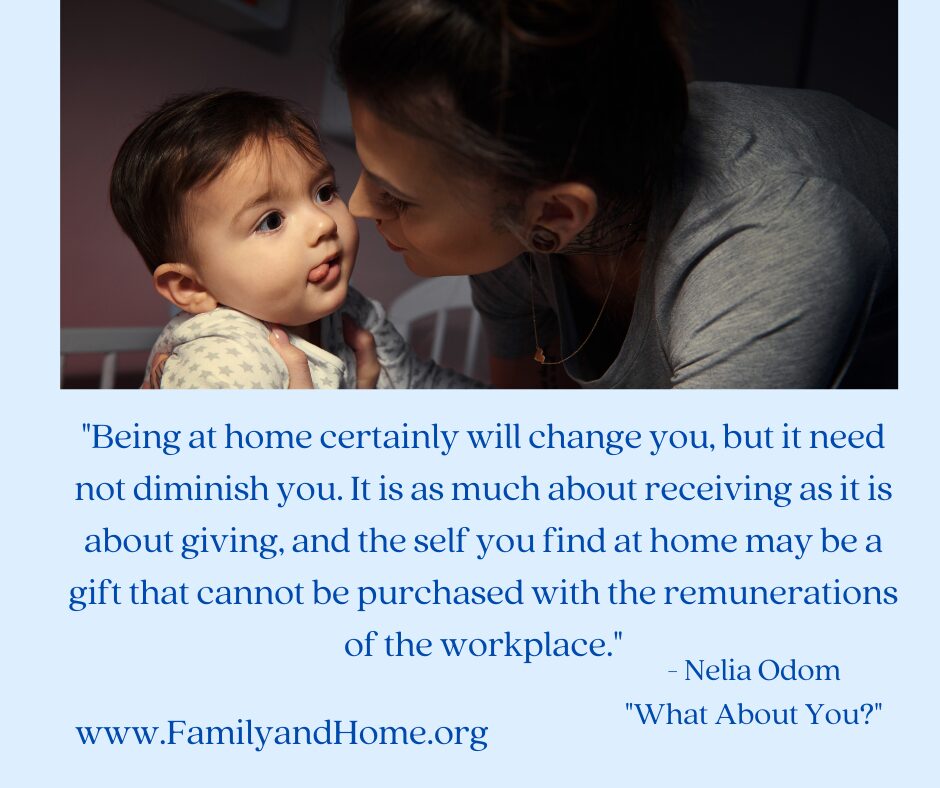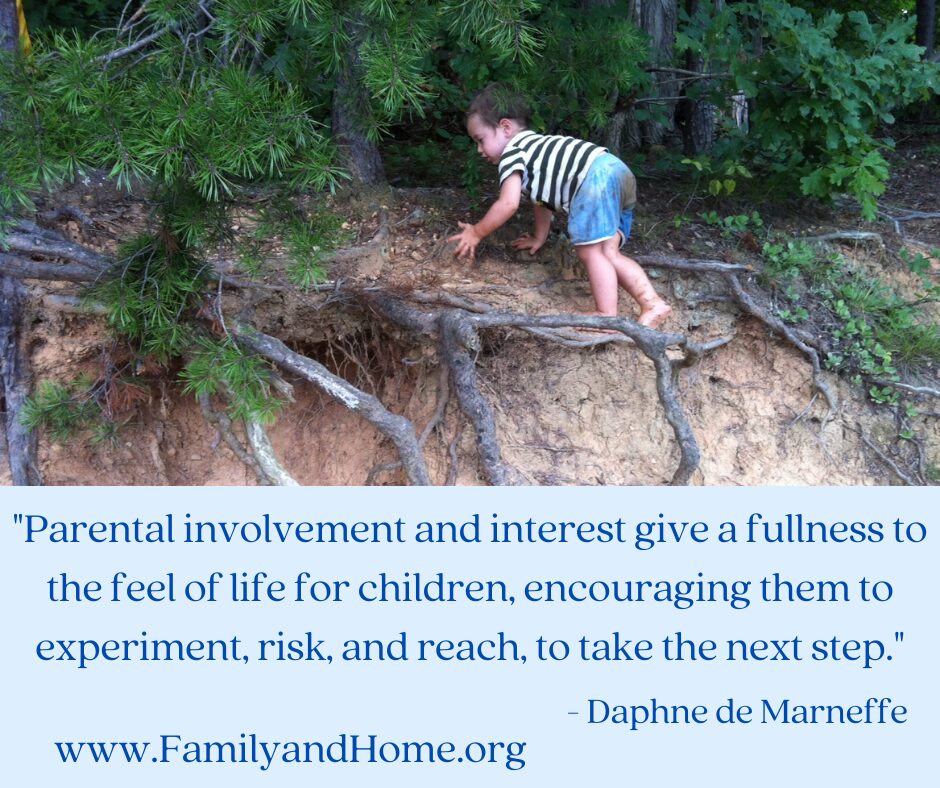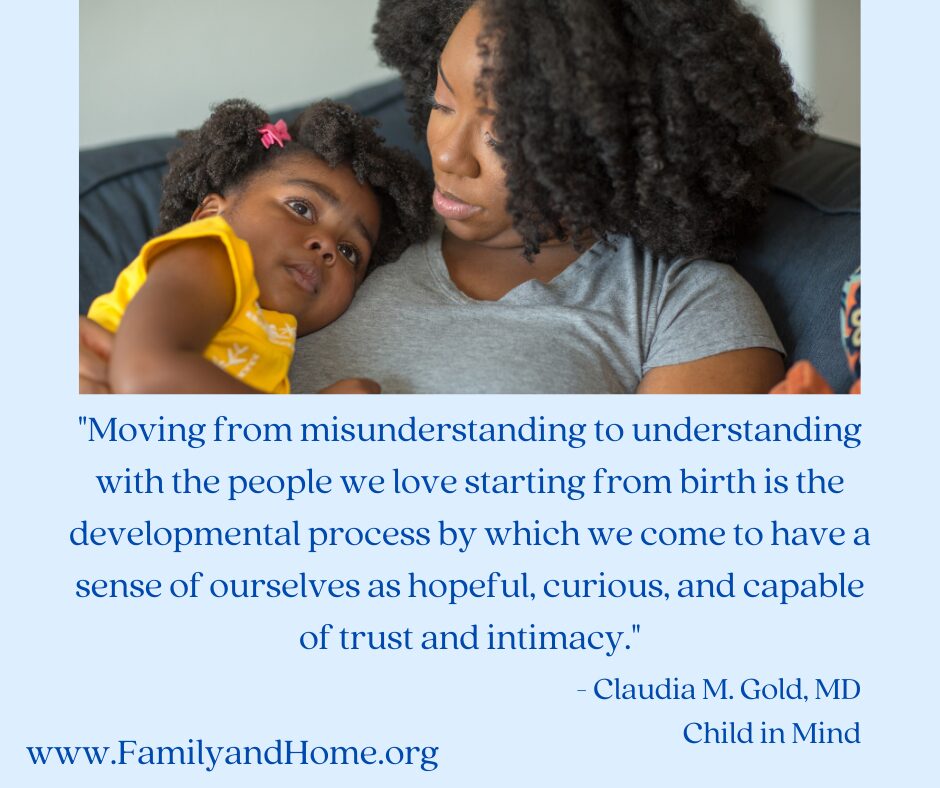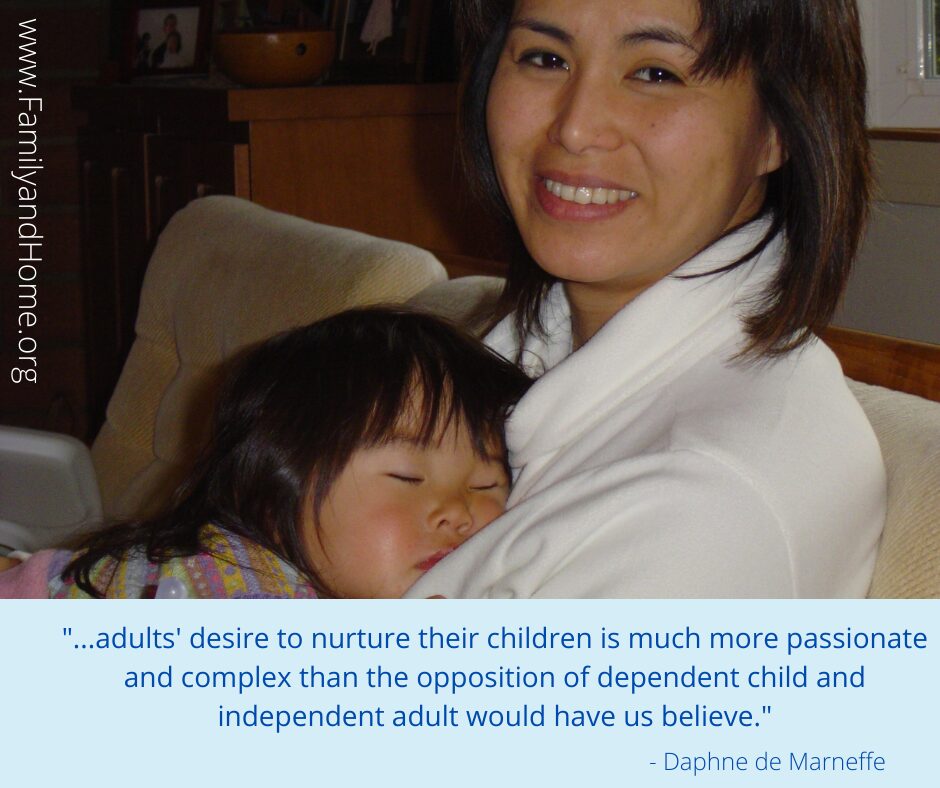MEDIA, RESEARCHERS AND POLICYMAKERS
Family and Home Network (FAHN), founded by three at-home mothers in 1984, is a grassroots 501(c)(3) nonprofit organization. FAHN offers affirmation, information, and advocacy to at-home mothers and fathers, to tag-team parents and all who spend (or want to spend) generous amounts of time together with their children.
For more about our organization’s history, vision and mission, please see About Us.
With our Campaign for Inclusive Family Policies, we advocate for policies for ALL families. And see our Resources on Inclusive Family Policies.
Ethical Guidelines for Reporting on Families
Our nation’s renowned developmental scientists are warning that we’re not meeting the essential needs of children. We’ve already lost many critical elements of The Evolved Nest—nurturing parental behaviors and community support for parents, conditions necessary for healthy human development. The wellbeing of our children is declining. These are issues that should be covered in reporting on family policy proposals.
In the New York Times’ handbook on Ethical Journalism, there are special instructions for sports, arts, technology, and a number of other subjects. But nothing about reporting on families.
We call on The New York Times and all media representatives to give adopt ethical guidelines for reporting and editing on family issues. Here are our recommendations:
- Recognize that theories of 50/50 feminism do not align with the diversity of women’s preferences or behavior and stop presenting those views as an indicator of any kind of ‘modern’ or ‘better’ way of living.
- Retire the misuse of the false dichotomy of ‘working’ or ‘at-home’ mothers and statistics rooted in this concept.
- Acknowledge the diversity of choices mothers and fathers make about the care of their children, and the reality that families often change their choices as their children grow.
- Investigate the spending on lobbying and public opinion campaigns of those with economic and ideological interests in keeping parents in the workforce.
- Examine the mountain of evidence from interdisciplinary work in developmental science and report on it. This includes the powerful effects of poverty reduction in improving the wellbeing of children and parents.
The making and raising of human beings is as important as any topic covered by the media.
Stay in touch - sign up for our newsletter!
Affirmation – Information – Advocacy
Use of the term “working mother”
For decades, much of the reporting on families has focused on mothers’ participation in earning income. The term “working mother” is frequently misunderstood and/or used in a way that misrepresents reality. The U.S. Department of Labor’s statistics on “working mothers” include any mother with a child under the age of 18 AND include mothers who earn any income at all.
Avoid stereotypes; acknowledge diversity
Media reports often perpetuate stereotypes about at-home mothers. This starts with the misconception that women of the 1950’s lived their lives as depicted by sitcoms of that era. Reporters must not assume that mothers of the 1950’s should be pitied or disdained. Similarly, using the term “traditional family” is problematic. Instead, use “families with an at-home parent” if necessary. Better yet, avoid dividing parents into categories of “at-home” and “working.” Understand the diversity of families’ income-earning and caregiving strategies; and recognize that any one family’s current practices are likely to change over time.
Watch out for the Care Economy
Examine assumptions about the work and the value of caregiving. When we pay someone to care for a child and/or do household labor, that work is valued (even if it’s under-valued) AND it’s counted in measures of GDP. Yet when a parent does the caregiving and/or household work themselves, that work is not counted in measures of GDP, it is unpaid labor.
Venture capitalists aim to profit from providing care services, claiming they are freeing people from the burdens of providing care to their own family members. They spend millions lobbying lawmakers to fund care services.
Family and Home Network knows that parents meet their caregiving and income-earning responsibilities in many ways. We advocate for equitable support for all kinds of care for children—including care by parents themselves: Campaign for Inclusive Family Policies.


